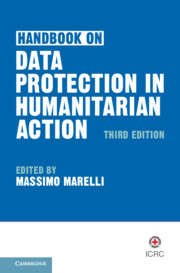The work of humanitarian organizations requires the processing of Personal Data. They must work as effectively and efficiently as possible to assist individuals faced with persecution or natural disasters, so protecting the processing of their Personal Data can literally be a matter of life and death. Despite its great benefits, Data Processing (particularly that carried out online) also brings risks, such as the potential for data misuse and threats to cyber security. This is why data protection has become essential for humanitarian organizations to fulfil their mandates, and why it is increasingly expected by their stakeholders.
The International Committee of the Red Cross (ICRC) and the Brussels Privacy Hub have already published jointly two editions of their Handbook on Data Protection in Humanitarian Action, of which I was proud to be co-editor. They provide guidance for organizations working in the humanitarian sector to implement data protection in their operations. However, since then the risks of data misuse, security breaches and unauthorized Data Processing have continued to grow, new legal issues surrounding Data Processing have emerged and the challenges for humanitarian organizations have increased correspondingly.
I am thus very happy that Massimo Marelli of the ICRC has edited this third edition of the Handbook, which is needed given the growing legal and practical complexity of implementing data protection. It goes beyond the first two editions by covering additional topics such as risk mitigation, digital contact tracing and government access, among others. It also provides further elucidation of both the relevant legal issues and the practical challenges that humanitarian organizations face.
Data protection must constantly evolve to meet threats to Data Processing. This third edition of the Handbook will be a key tool for humanitarian organizations to protect the data of vulnerable individuals and to fulfil their mandates.

